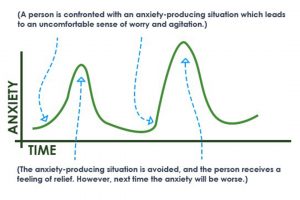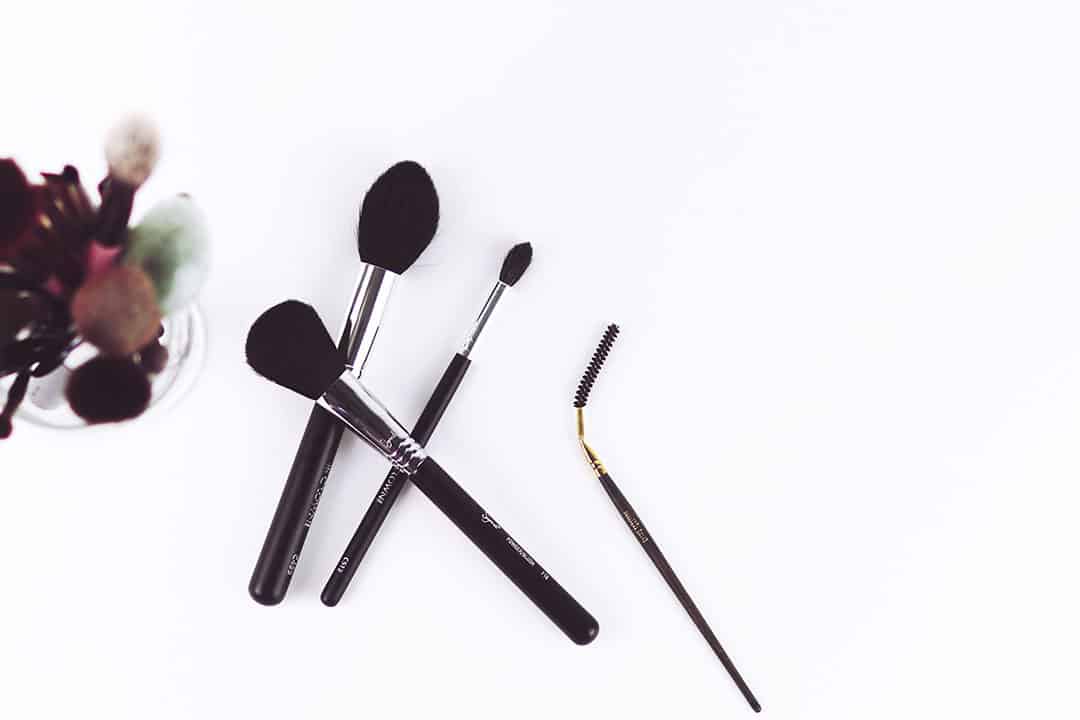Self-help strategies to cope with social anxiety disorder
There are so many different reasons why people develop social anxiety disorders and identifying the root cause/s are critical to the approach towards healing. Research by Ditch the label has shown that 37% of people who have social anxiety have developed this as a direct result of bullying. Other studies have found that long term isolation can elicit depression and anxiety including social phobia (Han et al 2014), meaning that those who are living alone, or have recently moved area/ jobs/ educational institutions are particularly at risk.
The diathesis stress model observes how life events may trigger psychological problems one is already at risk of through their own temperament or biology. Turner and Lloyd (2004) found that around 6 major life events and long-term lifetime adversity can lead to depressive or anxious episodes. Many people reading may be able to relate to the idea that it felt like something just snapped when faced by another life event, that something broke inside them, or that they did not feel their first episode in particular was preventable at all.
Whatever the reason you are struggling now, there are some things you can do to get better. Please note that many of the things listed below are going to be extremely difficult to do and will feel incredibly uncomfortable, they may even make you feel worse than if you didn’t try at all but only in the short term, in the end inshaAllah it will all be worth it. In fact, the whole idea of exposure therapy which is commonly used in Cognitive Behavioural Therapy (CBT) is to expose yourself to your triggers and stay in that environment/ space for long enough that the anxiety subsides. It may take absolutely everything you have to not run away, but know that leaving an exposure exercise in the middle will cause more anxiety next time (see the graph below, alongside a graph which shows exposure done well). Leave after calming down and passed the height of your anxiety. As always, please do seek professional help if you feel this would benefit you.


One powerful way of starting your journey to manage your social anxiety is setting weekly goals or challenges. Setting a small number, like one to three per week would be a good start. For example depending on how severe your social anxiety feels, set goals like 1) going to the shop alone to buy something you’ve wanted and checking out at the cashier desk, not the self-service machine, 2) going out with a friend somewhere you don’t feel confident going alone, 3) going to a public event that you are genuinely interested in and chat to a stranger.
What is important to note is that the way you think about the exposure exercise is everything, you may find that exposure therapy hasn’t worked for you before because your entire focus was to get rid of your social anxiety. Having another focus may help, for example, making your sole goal of going into that shop to buy an ice-cream, or making your sole goal of going out with your friend to catch up and bond with them, or making your sole goal of going to that public event to learn about the thing you are interested in. Learning to let go of your mistakes, and be able to tolerate feelings of awkwardness is key so having a goals like ‘acting “normally”’ or ‘being liked’ or ‘doing things so perfectly it looks like a movie scene’ will very rarely be helpful because they are both out of your control and demanding perfection from yourself. Allow yourself to mess up and really try to find humour in it if you can- even if it feels awful in the moment when you can look back and laugh instead of beating yourself up. If you are resisting this please think, who benefits from you hating yourself instead of radically accepting yourself? Has being so critical of yourself worked so far? Or has it deepened your struggle?

Another thing that is important is being able to tolerate physical manifestations of social anxiety. Yes, it is incredible uncomfortable; you may be blushing uncontrollably, stumbling on your words or stuttering or even freezing and not being able to get any words out at all, or your heart is racing and your eyes are twitching and you’re praying nobody can notice. You’ve got to learn to sit in that discomfort. Different approaches to this may be helpful- for example, 1) it might help to recognise nobody will care and practising not caring yourself or 2) recognising that it’s out of your control, if you could control it you would, so this anxiety is not you if you are observing how irrational you think it is, 3) you can just take a step back and think ‘okay, my body is reacting this way to a perceived threat and is trying to protect, I accept this and will be at peace with it’. You’ll find that acceptance will help reduce the severity of these physical symptoms, but yes, accepting yourself is in and of itself difficult at first.

One thing which is common amongst socially anxious people is a perception that everyone around them has things under control, that they are the only ones who struggle in social situations and this is farther from the truth than ever; 12.1% of adults are now estimated to have a social anxiety disorder (Kessler, 2005). You are not alone, and thinking about how this percentage is increasing, reflect that there must be cultural forces behind this. There may be things you have internalised, ways of seeing the world, which you have learnt and which you will now be trying to unlearn. Also, ironically, many people find a certain peace in meditating on the relative triviality of the situations which make them anxious, as well as the ways they are not special. Believing you are fundamentally different from people who don’t suffer anxiety may not be helpful, you may have had a predisposition to developing social anxiety. This doesn’t mean other people don’t feel the basic emotions you may feel a lot more often, they also feel embarrassed or awkward and they may even want to impress you or make you like them as much as you want them to like you (!), however you may have such low self esteem that you did not ever consider that. If you find it hard to believe this remember that we were all little kids, do you really believe that there’s ever been any child who didn’t grow up feeling nervous about making new friends or ever feeling embarrassed when they had to present in front of the class or who hasn’t experienced being teased? This anxiety is a testament to the fact that we are social creatures, it’s important for us to bond with others not just for our survival but for our wellbeing and happiness, so it’s only natural that all of us have felt (although maybe in just a very small way for some) anxiety in social situations. For 12.1% it is at a level considered a psychiatric disorder so there are people out there seeking ways to heal as well, more than 1/10. Something to think about next time sitting in a packed train carriage- chances there’s at least another person in there that is trying to manage their anxiety in there too.





As salaam alaykum. Although exposure as part of CBT is often helpful, research has shown in social anxiety that reducing safety behaviours e.g. avoiding eye contact, not speaking etc. are key to longer term recovery.
May Allah ease anyone’s hardship experiencing social anxiety. Alhamdulillah I have experienced it in the past and you can recover insha’Allah.
We alaykum assalam, JazakAllah Khairan for your comment and this information! Ameen! It’s always a comfort to read that other people have been through the same things and have recovered Alhamdulilah, thank you for sharing and inshaAllah inspiring hope of a better future for anyone experiencing this right now.